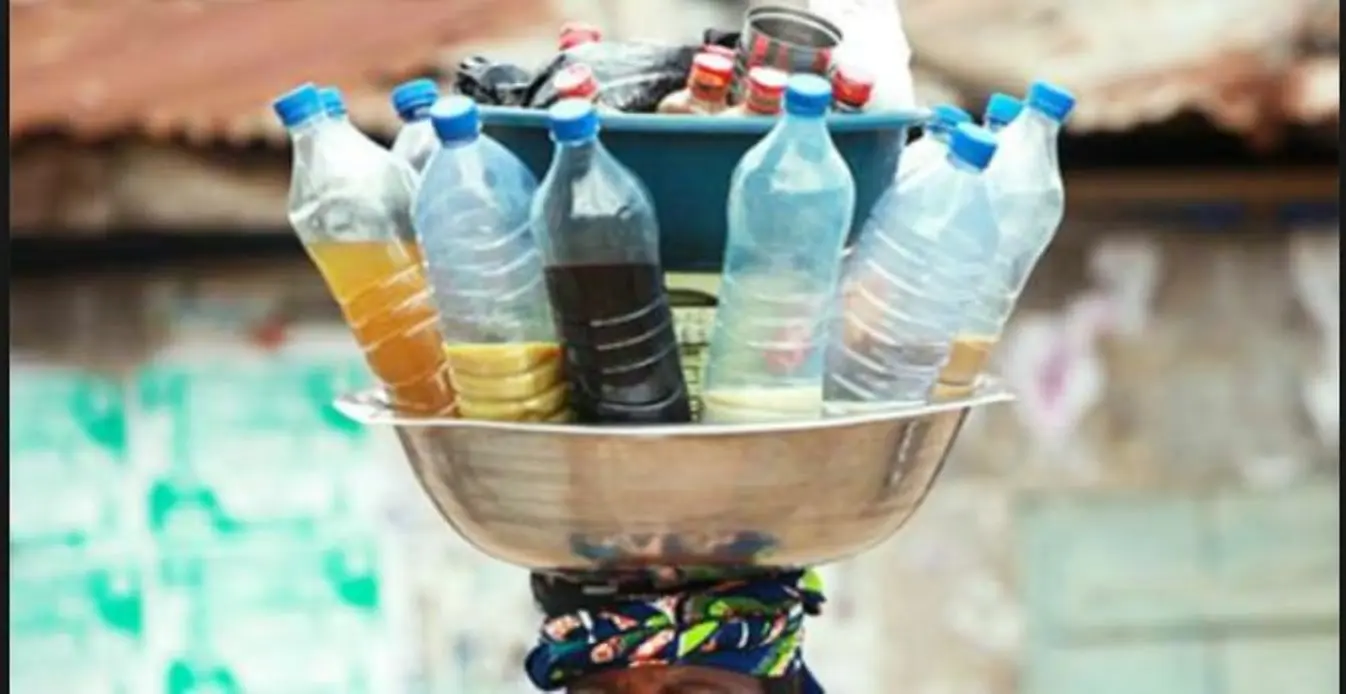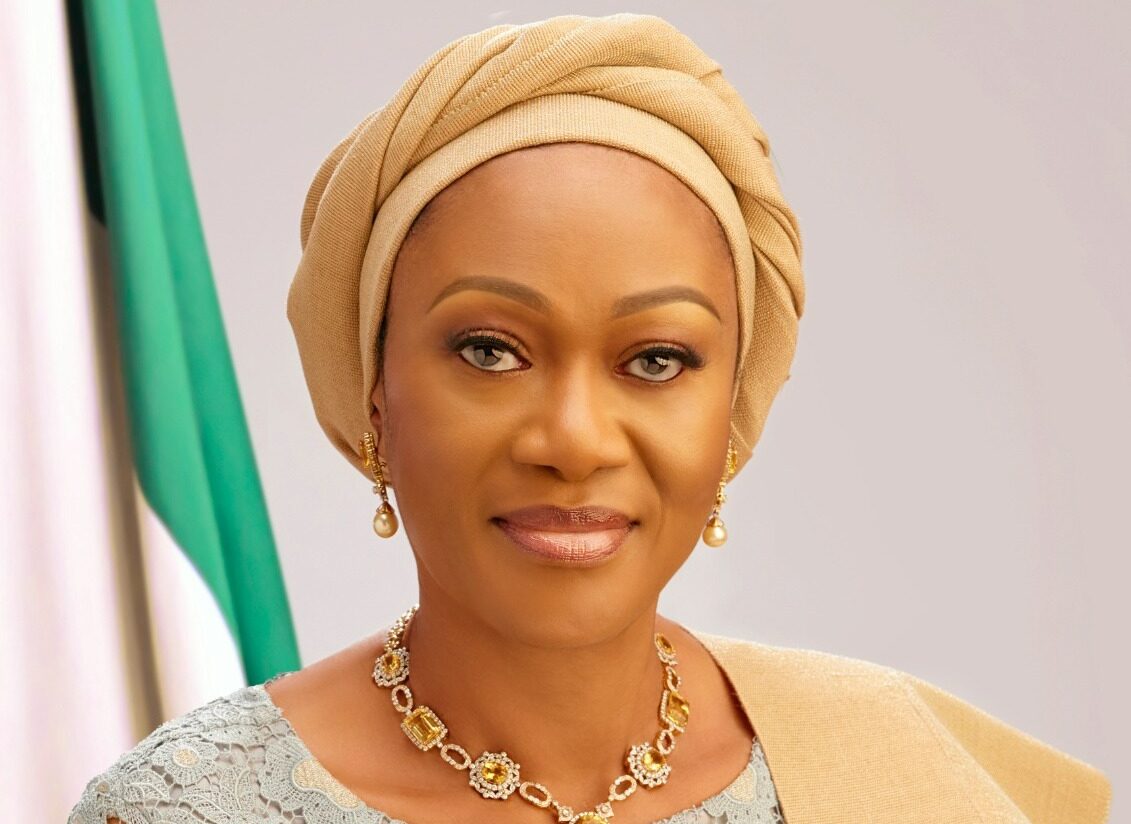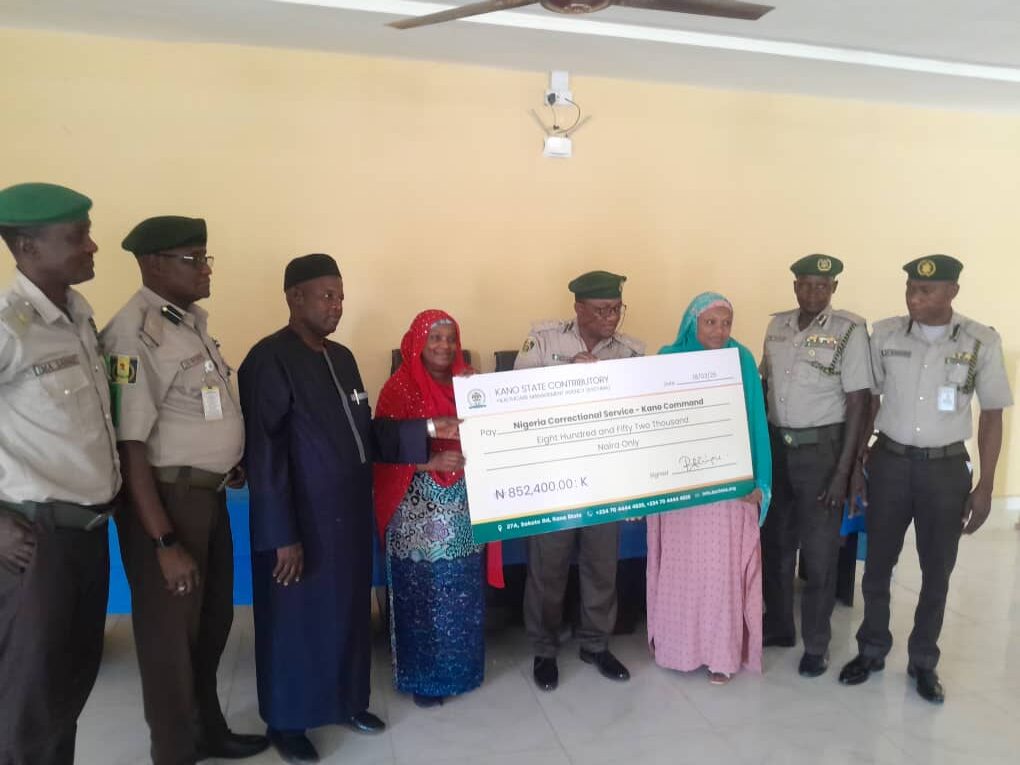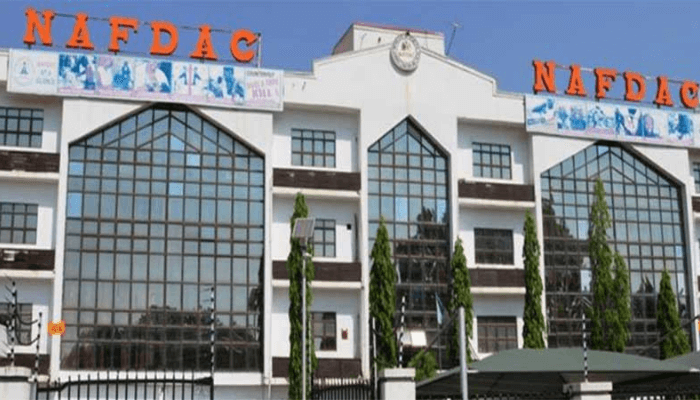Health
FCT residents resort to “agbo” as prices of drugs soar

FCT residents resort to “agbo” as prices of drugs soar
Following the astronomical increase in prices of drugs, some residents of the Federal Capital Territory (FCT) have resorted to herbal concoctions commonly referred to as “Agbo” to treat various illnesses.
Agbo is made by combining different herbs, roots and plants that are believed to have medicinal properties.
The News Agency of Nigeria(NAN) reports that the prices of many prescribed and over-the-counter medications have witnessed a steady increase, making these drugs unaffordable and unavailable.
NAN confirmed this from some pharmacies visited in the FCT where some drugs were reported to be scarce or unavailable, such as Augmentin, Multivitamins like Omega H3, Ventolin inhaler and Fleming antibiotics.
A pharmacist who spoke on the condition of anonymity said: “GlaxoSmithKline(GSK) products are now scarce and expensive since the company announced its exit from Nigeria.
“For the GSK products, we have the example of Paracetamol which a single card was being sold at N200, but now has increased to N400.
“Fidson products too have increased in prices. Whenever we go to buy drugs, the prices keep going up.
“We are even thinking of returning some stocks supplied by our suppliers that we have not paid for because they are too expensive and people are not buying; our customers are complaining,” she said
In one of the big pharmacies visited by NAN, Ventolin inhaler is selling at N8,870 as against N2,000, while Augmentin is selling for between N23,000 to 25,000 as against N3,000 to N5,000 it was sold before the GSK exit.
Nicholas Adah, a cleaner, who spoke to NAN said he was advised by his friend to take agbo after sharing his symptoms with him.
“I went to the chemist to buy drugs but I did not have the money to buy the antibiotics they prescribed for me, it was so expensive.
“My friend told me to take agbo after I told him how I was feeling. I took his advice and they prepared the one for treating typhoid for me and I feel a lot better, ” he said.
Wasiu Ahmed, a vulcaniser, said: “Why would I go and spend money that I do not even have to buy medicine from a chemist when I can take agbo?
“The country is too hard, no money anywhere. How much do I make from this work I am doing? Agbo is good and it helps my body feel better.”
A taxi driver, Sunny Adeniyi, said he preferred to take agbo to treat his ailments because it is effective and cheaper than orthodox medicine.
“Thank God, I hardly fall sick, but whenever I feel sick like having fever or waist pain, I take agbo and it works for me.
“There is no money to go to the chemist or hospital because everything in Nigeria is expensive. By the time I buy fuel, I won’t have money again,” Adeniyi said.
Agbaje Adeola, a corporate driver, said he made agbo at home for his use and other members of his family adding that he only visited the hospital for very serious health issues.
“I take agbo every three days or if I feel like I have malaria. I prefer it because that is what I grew up with. I also force my children to take it once in a while.
“Sometimes, I do buy agbo from hawkers but the problem with that one is that there is no measurement. I prefer using local herbs because it is good for the system,” he said.
An agbo seller, Sisi Ayo, who said she has been in the business for a while, said she got new customers regularly, both educated and uneducated people.
“Some people do not have money to buy drugs from the pharmacy when they are sick, so they patronise me.
In fact, in recent times, my patronage has more than doubled.
“My customers do ask me to mix herbs for them to treat body pains, aches, malaria or typhoid fever, “jedijedi/opa eyin” (hemorrhoids) “ale” (libido booster) and even ulcer.
“Most of them do come back to thank me that my agbo is effective and they also recommend their friends to me.
“I also have some customers who just take it to get high and forget their sorrows. These kinds of people prefer to take the agbo mixed with alcohol. ”
“I sell for as low as N100 for a measure of a small cup and up to N300 depending on the ailments
For those that prefer a preparation that they can take home, I sell for N1,500 to N3,000 in a plastic container depending also on the ailments,” she said
Mrs Theresa Okafor, a retiree and widow who is hypertensive said the prices of all her medications had increased by 10 per cent to 40 per cent and she could no longer afford to buy some of them.
Okafor, who said the cost depended on brand name and availability, added that her physician had to replace some of her drugs with cheaper brands.
“My pension is N100,000 a month, and I still have children in universities. One of my medications increased from N4,500 to N6,000; the cost of food, fuel, and everything has also increased. I am just living by the grace of God.
“Government really needs to help Nigerians, especially retirees, many of whom are dying every day because they cannot afford to buy the medications prescribed for them,” Okafor said.
(NAN)
Health
First Lady directs establishment of PHC in Sauka FCT to combat TB

The First Lady of Nigeria, Mrs Oluremi Tinubu, has directed Dr Adedolapo Fasawe, Mandate Secretary of the FCT Health Services and Environment Secretariat, to oversee the establishment of a Primary Healthcare Centre in Sauka, FCT.
A statement issued by the Special Adviser to the Secretary, Bola Ajao, on Wednesday highlighted that the initiative aimed to strengthen healthcare services in the region.
It also emphasised the goal of combating tuberculosis (TB), with support from FCT Minister, Mr Nyesom Wike.
According to the statement, Mrs Tinubu, who also serves as the Global and National Stop TB Champion, made the announcement at an event in Sauka, FCT, to commemorate World Tuberculosis Day 2025.
The event was organised by the Federal Ministry of Health in collaboration with the FCT Health Services Secretariat, Stop TB Partnership Nigeria, the World Health Organisation (WHO), and other partners.
During her speech, the First Lady emphasised the importance of grassroots interventions in the fight against TB.
She noted that the event themed, “Yes! We Can End TB: Commit, Invest, Deliver,” had been locally translated to “We Fit Run Am; A Collective Call for Action Against TB” to better resonate with the community.
“To support the fight against this communicable disease, I will not only donate N1 billion but also approve the establishment of a Primary Healthcare Centre in Sauka Community.
“This initiative aligns with President Tinubu’s Renewed Hope Agenda for an efficient healthcare system,” the First lady stated.
The First Lady added that Fasawe would oversee the project’s implementation with the backing of the dedicated FCT Minister, Wike.
She further explained that the new facility would serve as a critical hub for TB detection, treatment, and general healthcare services, ensuring that residents received timely and quality medical care.
In spite of TB being preventable and treatable, the First Lady pointed out that it remained a significant public health challenge in Nigeria, which ranked among the countries with the highest TB burden globally.
“This underscores the urgent need for improved healthcare services and stronger community-based interventions.”
In her response, Fasawe commended the First Lady for her unwavering dedication and strong support in the fight against TB elimination.
She also acknowledged the efforts of FCT healthcare workers, whose hard work had contributed to significant improvements in the health system.
“The establishment of the new Primary Healthcare Centre in Sauka is a significant step toward enhancing healthcare services, improving TB control, and ensuring accessible healthcare for all in the FCT,” Fasawe affirmed.
The event also featured an exhibition stand by the Public Health Department of the FCT, where attendees were provided with free TB testing.
Key stakeholders in attendance included Hajiya Nana Shettima, Wife of the Vice President; Members of the National Assembly; Dr Iziaq Salako, Minister of State for Health; and Mrs Adekemi Nanpad, Comptroller General of the Nigeria Immigration Service.
Also present were wives of the Federal Executive Council members, Dr Walter Kazadi Mulombo, WHO Country Representative, and many others.
Health
Kano Govt pledges quality healthcare in custodial centres

The Kano State Government has pledged its commitment to quality healthcare services for inmates in custodial centres across the state.
The Executive Secretary of the Kano State Contributory Healthcare Management Agency (KSCHMA), Dr Rahila Aliyu-Mukhtar, made the pledge while presenting the allocation of a monthly capitation of N852, 400 to support medical services for inmates in custodial centres.
She lauded Gov. Abba Kabir-Yusuf, for supporting vulnerable individuals and prioritising healthcare for inmates.
The executive secretary also commended the Kano command of the Nigerian Correctional Service for its support and cooperation.
She commended Kano for being one of the first states to enrol inmates in a structured healthcare scheme.
Responding, the Controller of Corrections, Kano State Command, Ado Inuwa expressed appreciation to the state government for its unwavering support in the enrollment of inmates under the healthcare services scheme.
He assured that the allocated funds would be utilised judiciously to cover essential medical treatments and emergency care for inmates.
Inuwa lauded Aliyu-Mukhtar for her zeal, determination and commitment to humanity, particularly in ensuring that inmates have access to healthcare services.
NAN reports that on Dec. 31, 2024, the state government approved the enrolment of inmates in custodial facilities into the State’s Health Contributory Scheme, ensuring they now enjoy health insurance coverage.The scheme provides inmates with access to basic and comprehensive healthcare services while in custody.
Headlines
NAFDAC strengthens regulations to combat antimicrobial resistance in Nigeria

The National Agency for Food and Drug Administration and Control (NAFDAC) has intensified its efforts to combat Antimicrobial Resistance (AMR) in Nigeria by implementing stricter regulations and surveillance measures.
Dr Tunde Sigbeku, Deputy Director and AMR-OH Focal Person at NAFDAC, said this on Thursday in Lagos.
Sigbeku spoke during a five-day training session for journalists, civil society organisations (CSOs) and community-based organisations (CBOs) focused on AMR.
The News Agency of Nigeria (NAN), reports that the training was organised by the Fleming Fund Country Grant (FFCG II).
The project is supported by the UK Government’s Foreign, Commonwealth and Development Office (FCDO).
Sigbeku highlighted the dangers of AMR, emphasising that it poses a severe threat to human, animal, and environmental health.
He said that NAFDAC had implemented several policies, including banning the use of antibiotics as growth promoters in livestock and fish production.
“AMR is real and with us in Nigeria. We have cases in hospitals, including babies born with colistin resistance, and it is also present on farms.
“We are taking steps like prohibiting the sale of branded medicated feed in open markets.
We are also restricting the use of certain veterinary drugs in food-producing animals, such as Carbadox, Nitrofural, and Olaquindox.
“We are strengthening port inspections to detect substandard and falsified antibiotics using advanced technologies like TRUSCAN and the Mobile Authentication Service (MAS),” he said l.
According to him, recognising that AMR requires a multi-sectoral approach.
He said that the agency had established collaborations with international and national stakeholders.
He listed such stakeholders to include the World Health Organisation (WHO), the Food and Agriculture Organisation (FAO), and the Fleming Fund.
“NAFDAC is also monitoring the importation and use of human and veterinary antibiotics to ensure compliance with national regulations,” he said.
Sigbeku stressed the need for continuous public awareness and collaboration with research institutions.
“We must educate, advocate, and act now.
“Increased surveillance, research, and policy enforcement are crucial to preventing a post-antibiotic era where common infections become deadly,” he said.
As Nigeria joins the global fight against AMR, he urged healthcare providers, farmers, and the general public to use antibiotics responsibly to preserve their effectiveness for future generations.
NAN recalls that the FFCG II has been instrumental in Nigeria’s fight against AMR.
Managed by Management Sciences for Health (MSH), the project collaborates with the One Health Ministries.
They are the Federal Ministry of Health and the Federal Ministry of Agriculture and Food Security (FMAFS), as well as the Federal Ministry of Environment.
The aim is to implement a coordinated, multisectoral approach addressing AMR across human, animal, and environmental health.
Aligned with Nigeria’s FFCG Phase 2 Country Investment Strategy (CIS), the project focuses on four priority areas:
Producing quality AMR data, analysing data effectively, sharing analysis with decision-makers and promoting sustainable investment to counter AMR.
Through these efforts, the project plays a crucial role in strengthening Nigeria’s response to AMR, a growing public health concern.
-

 Headlines4 years ago
Headlines4 years agoFacebook, Instagram Temporarily Allow Posts on Ukraine War Calling for Violence Against Invading Russians or Putin’s Death
-

 Headlines4 years ago
Headlines4 years agoNigeria, Other West African Countries Facing Worst Food Crisis in 10 Years, Aid Groups Say
-

 Foreign4 years ago
Foreign4 years agoNew York Consulate installs machines for 10-year passport
-

 News1 year ago
News1 year agoZero Trust Architecture in a Remote World: Securing the New Normal
-

 Entertainment3 years ago
Entertainment3 years agoPhyna emerges winner of Big Brother Naija Season 7
-

 Headlines2 years ago
Headlines2 years agoNigeria Customs modernisation project to check extortion of traders
-

 Entertainment2 years ago
Entertainment2 years agoMovie download platform, Netnaija, announces closure
-

 Economy2 years ago
Economy2 years agoWe generated N30.2 bn revenue in three months – Kano NCS Comptroller







